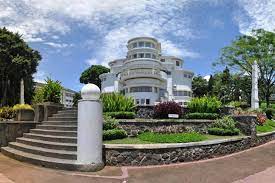SEJARAH
Music Education Study Program was founded in 1981, which was originally
called
the Music Education Study Program, under the auspices of the Department
of Sendratasik. Then based on SK4107/UN40/DT/2011, the operational
permit was determined.
Born in 1981 with the name Music Department FPBS IKIP Bandung, were opened to meet the needs of music teachers in public schools, especially at the junior high and high school levels. For the efforts of the IKIP Chancellor at that time, Prof. Nu’manSoemantri, M.Sc and assisted by education figures and artists from Bandung, including Dana Setia, BA, AgamNgadimin, and Harry Roesli, opened the Diploma One (D-1) level which aims to prepare music teachers for junior high schools with a period of education for one year. Then in 1982, the D-2 level was opened with a two-year education period. In line with the need for teachers at the high school level, in 1985 the D-3 level was opened with a three-year education period. At that time all students at that level received a scholarship from the government in the form of the Service Association Allowance (TID).
In the same year, the name of the Department of Music was changed to the Music Arts Education Study Program under the auspices of the Department of Education, FPBS IKIP Bandung, in which there are two study programs, namely the Music Arts Education Study Program and the Dance Arts Education Study Program. Since the termination of the TID scholarship assistance from the government, in 1992, in line with the emergence of the Chancellor’s policy at the time, the Department of Education Sendratasik had to open a Strata One (S-1) level.
LAB
- LAB MUSIK
- LAB KOMPUTER
PROGRAM STUDI
Vision
Pioneer and excellence in music education at the national level by 2022 and at the ASEAN level by 2025.
Mission
- Produce professional music education graduates who have noble character, are
creative, innovative, master technology, are able to communicate, and are
entrepreneurial. - Organizing quality music education by considering the balance between local and
global wisdom values; - Carry out research that contributes to improving the quality of music education.
- Disseminate research results, experiences, and ideas through community service by
lecturers and students; - Establish partnerships in the fields of education, research and community service with
other institutions, both government and private, regionally, nationally, and
internationally, especially ASEAN;

 MASUK PTN
MASUK PTN